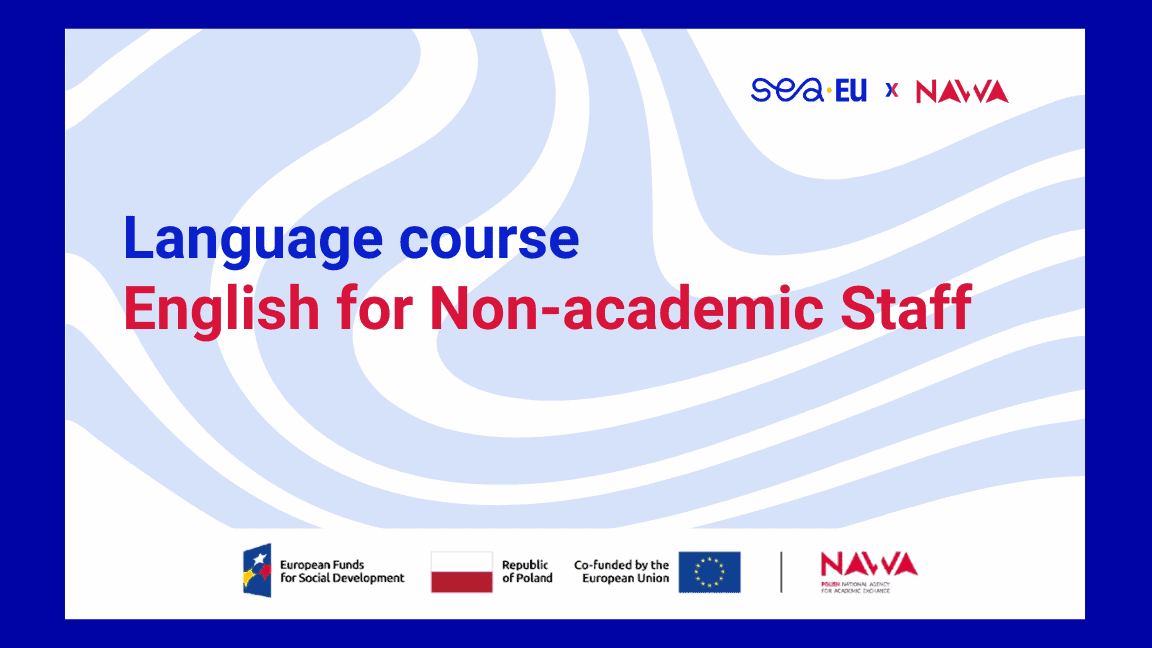Teacher: Agnieszka Błaszkowska
Format: Faculty of Economics
| Date | Time | |
| 1. | 18.03.25 | 14:30 – 16:00 |
| 2. | 19.03.25 | 14:30 – 16:00 |
| 3. | 25.03.25 | 14:30 – 16:00 |
| 4. | 26.03.25 | 14:30 – 16:00 |
| 5. | 01.04.25 | 14:30 – 16:00 |
| 6. | 02.04.25 | 14:30 – 16:00 |
| 7. | 08.04.25 | 14:30 – 16:00 |
| 8. | 09.04.25 | 14:30 – 16:00 |
| 9. | 15.04.25 | 14:30 – 16:00 |
| 10. | 16.04.25 | 14:30 – 16:00 |
Teacher: Martyna Włodarczyk
Format: MSTeams
| Date | Time | |
| 1. | 19.03.25 | 16:00-17:30 |
| 2. | 20.03.25 | 16:00-17:30 |
| 3. | 26.03.25 | 16:00-17:30 |
| 4. | 27.03.25 | 16:00-17:30 |
| 5. | 02.04.25 | 16:00-17:30 |
| 6. | 03.04.25 | 16:00-17:30 |
| 7. | 09.04.25 | 16:00-17:30 |
| 8. | 10.04.25 | 16:00-17:30 |
| 9. | 16.04.25 | 16:00-17:30 |
| 10. | 17.04.25 | 16:00-17:30 |
Teacher: Renata Korzeniowska
Format: MSTeams
| Date | Time | |
| 1. | 19.03.25 | 17:00-18:30 |
| 2. | 21.03.25 | 17:00-18:30 |
| 3. | 26.03.25 | 17:00-18:30 |
| 4. | 28.03.25 | 17:00-18:30 |
| 5. | 02.04.25 | 17:00-18:30 |
| 6. | 04.04.25 | 17:00-18:30 |
| 7. | 09.04.25 | 17:00-18:30 |
| 8. | 11.04.25 | 17:00-18:30 |
| 9. | 16.04.25 | 17:00-18:30 |
| 10. | 18.04.25 | 17:00-18:30 |
Teacher: Rafał Kuleta
Format: Former Rectorate, room 317
| Date | Time | |
| 1. | 18.03.25 | 10:00 – 11:30 |
| 2. | 21.03.25 | 10:00 – 11:30 |
| 3. | 25.03.25 | 10:00 – 11:30 |
| 4. | 28.03.25 | 10:00 – 11:30 |
| 5. | 01.04.25 | 10:00 – 11:30 |
| 6. | 04.04.25 | 10:00 – 11:30 |
| 7. | 08.04.25 | 10:00 – 11:30 |
| 8. | 11.04.25 | 10:00 – 11:30 |
| 9. | 15.04.25 | 10:00 – 11:30 |
| 10. | 18.04.25 | 10:00 – 11:30 |
Course Topics (every course has the same topics)
Session 1: Introduction. Administrative language at universities
- Overview of key terms related to the work of university administrative staff
- Preparing a professional self-introduction
Session 2: International cooperation: cultural differences
- Cultural differences in communication styles
- Discussion on challenges of working with international students and staff
Session 3: Handling inquiries
- Useful structures for making suggestions, proposals, and giving assistance
- Providing information and diving directions
- Vocabulary related to working hours, office locations, and administrative procedures
Session 4: Handling complaints and conflicts
- Strategies for managing difficult conversations
- Vocabulary for addressing complaints and issues
- Conditionals and passive voice to de-escalate conflicts
Session 5: Email correspondence: formal style and language precision
- Rules for writing formal emails
- Making requests, explaining matters, and exchanging information
Session 6: Advanced correspondence – official documents
- Structure and language of formal administrative letters
- Types of administrative documents
- Differences between neutral and assertive tones in official writing
- Writing acceptance letters and notifications about regulation changes
Session 7: Document management – student data handling, GDPR
- Expressions for describing document archiving and sharing processes
- Analyzing sample documents in English (error identification, filling in missing details)
- Use of modal verbs in formal contexts (must, have to, may, might)
- Data storage and sharing in line with regulations
- Formulating rules and instructions (e.g., „Students must not share their login credentials.”)
Session 8: Organizing meetings: planning and conducting
- Meeting organization
- Moderating meetings
Session 9: Organizing academic conferences and scientific events
- Planning and coordinating academic events
- Inviting speakers, organizing logistics, reserving rooms
- Responding to unexpected situations
- Creating event scripts and negotiating details in pairs
Session 10: Effective communication at the university
- Reported speech
- Conveying instructions, reports, and requests across departments/faculties
- Effective administrative cooperation, interfaculty collaboration, inter-university collaboration
- Solving organizational problems related to information flow
The initiative is being implemented as part of the project „Support for Synergistic and Complementary Actions of the SEA-EU 2.0 Project – SEA-nergy,” which is part of the NAWA program „Support for European University Alliances,” funded by the European Funds for Social Development.

